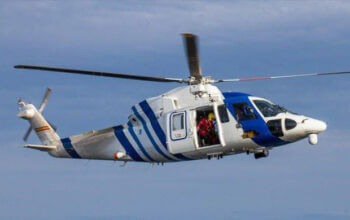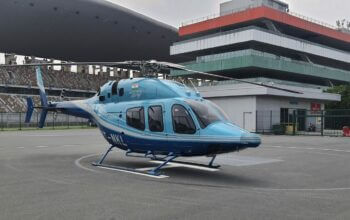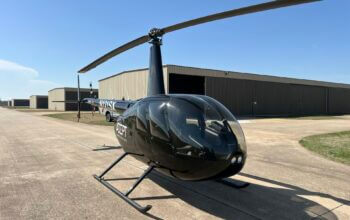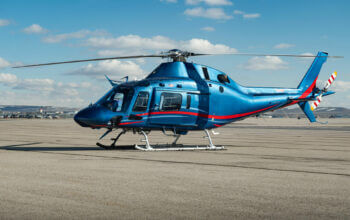Estimated reading time 5 minutes, 47 seconds.
Since Wheels Up launched in 2013, the U.S. members-only private aviation service has grown by leaps and bounds, selling 5,379 individual and 379 corporate memberships.
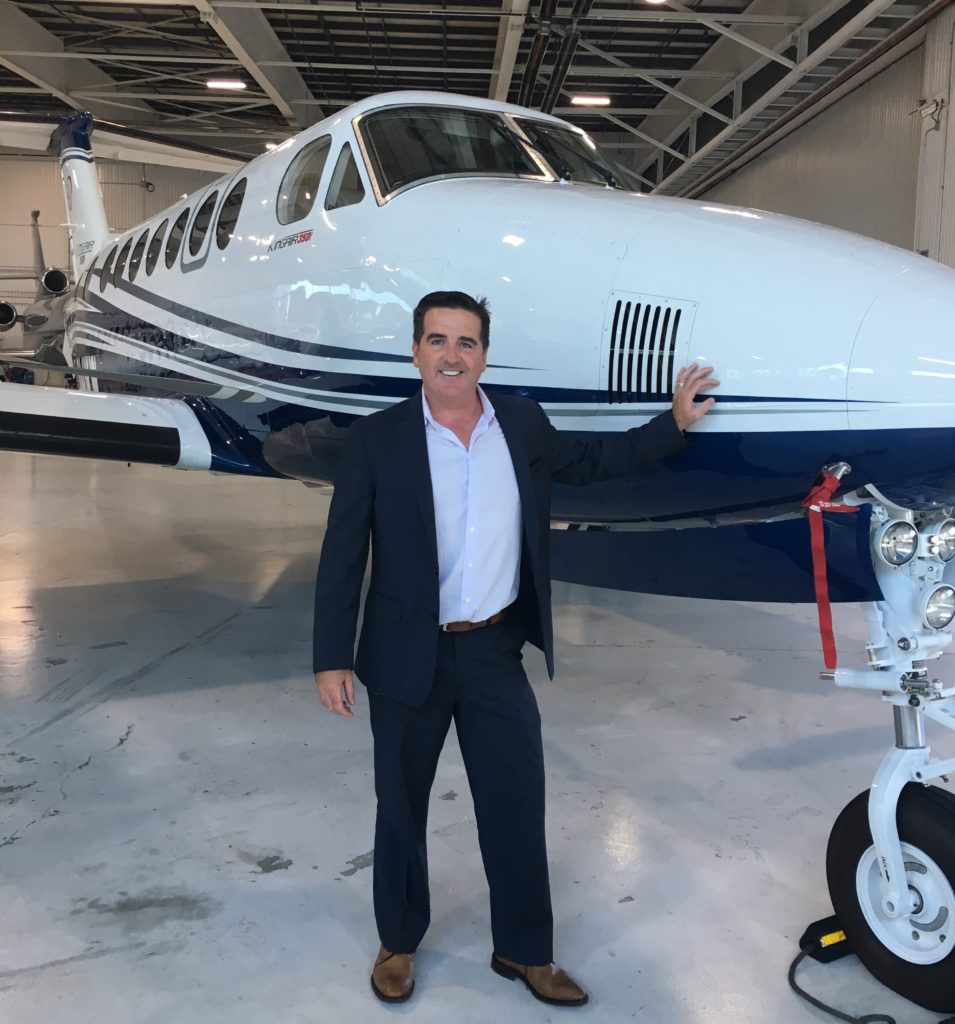
The idea behind Wheels Up has always been about reducing the cost of private flight–and it’s a concept that has proven to be popular south of the border. In 2017, Wheels Up flew 59,960 hours, covered close to 15 million miles (roughly 24 million kilometres), and visited 1,255 airports.
The backbone of the company’s fleet is the Beechcraft King Air 350i. Wheels Up owns 72 of the executive-configured turboprops, along with 15 Cessna Citation Excel/XLS and five Citation X aircraft.
While Wheels Up does venture into Canada (it logged 356 flights last year flying passengers to the U.S. from locations such as Toronto, Montreal, Vancouver and Hamilton, Ont.,) cabotage regulations prohibit its U.S.-registered aircraft from picking up a passenger in Toronto, for example, and flying them elsewhere in Canada.
Until recently, this fact has stymied Wheels Up’s growth in this country. But during an information session held at Toronto’s Pearson International Airport on July 24, Sean McGeough, the company’s executive vice-president of sales, discussed a solution that could soon see Wheels Up-affiliated aircraft based in Canada.
“We currently do a lot of north-south trips, Toronto to New York, etc.,” he told Skies. “There is definitely a market. I think folks that live here want to have a comprehensive solution, and unfortunately a U.S.-registered plane cannot land in Toronto and take people to the lakes.”
The solution? Partnering with Canadian operators through the Wheels Up Flight Desk, a network of off-fleet aircraft belonging to approved affiliates.
“The Flight Desk is a supplement to our core fleet, and it’s a big part of our business now,” continued McGeough. “Our members don’t always need to fly on a King Air or a Citation Excel. If they need a light jet or a [Gulfstream] G650 to go across the Atlantic, we can now provide that service. We want to capture that business.”
Last year, Wheels Up earned US$150 million through its Flight Desk network of about 62 affiliated private charter operators.
Alison Green, senior vice-president of Wheels Up, noted that just because an operator is approved, that doesn’t mean their entire fleet has been. The company will only accept aircraft in pristine condition, impeccably maintained, in keeping with the rest of their in-house fleet.

“We physically go in and inspect every plane; we trip check each crew member 24 hours ahead of a flight,” said Green. “It would be incomprehensible for us to just approve a partner where we haven’t gone out to inspect their planes and check their logbooks and crew.”
She said Wheels Up pilots (both core fleet and affiliates) typically hold airline transport pilot licences and have more than 4,000 hours of experience. Flight Desk affiliated operators must also have third-party audit verification through an independent organization such as ARGUS International or IS-BAO.
“Our goal is to have operators come on board with Flight Desk requests, but also to serve customers in Canada, which has been the missing link,” said McGeough. “Today, we are the largest charter broker in the United States, and we’re growing that month over month. There’s no reason Canada can’t be part of that success.”
Green said Wheels Up has about 40 regular customers in Canada, including corporations who use the company’s planes to fly in senior U.S. executives.
“We do a fair amount of back and forth to Chicago, New England, New York, and Florida,” she said. “But we’re still getting people saying they want to start in Hamilton and then go to Montreal and then to Nova Scotia. I’ve had people tell me, ‘The moment you can do this, we’re in.’ ”
Recently, Wheels Up launched its Flight Desk affiliate network in Europe. So far, the program has access to more than 85 approved aircraft.
“The whole [Flight Desk] process is seamless,” explained Green. “Say someone needs to go from Toronto to Las Vegas, which is beyond the range of our core fleet. Wheels Up member services will bring in the Flight Desk; they’ll reach out to the member and suggest two or three options. Once they select one, it goes back to member services and that trip gets managed as if it was on our Wheels Up fleet.”
McGeough said Wheels Up is currently in talks with several prospective Canadian Flight Desk partners.
“The demographic supports Wheels Up memberships here,” he said. “They just need to know we’re committed. Now, through Flight Desk, we have a mechanism to work with Canadian operators.”
As well as the Toronto event, the Wheels Up team also visited Montreal on July 25.
